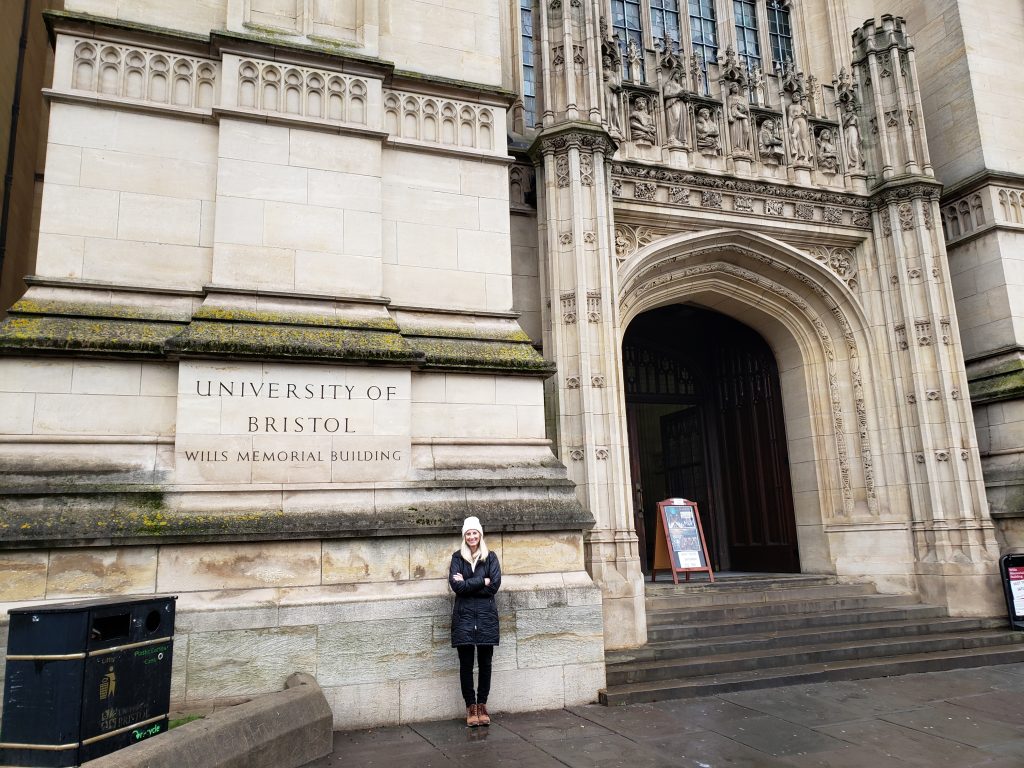By Kris Olson, Essay Expert
The United Kingdom has some of the top accredited medical universities in the world. From Imperial College London, to University of Bristol in the southwest, to Newcastle University in the north, among others, the UK offers a variety of medical degrees and courses, including dental school and veterinary medicine.
One of the first questions asked by students interested in seeking a medical degree in the United Kingdom is whether or not a medical degree in the UK is the same as in the US. The answer is yes. Here is an explanation of differences in language and specific qualifications:
- The MB degree, which stands for bachelor of medicine, is awarded for passing the medicine examination, thereby qualifying as a medical doctor. This degree is really the equivalent to the MD in the United States–it’s the standard degree.
- The BS, ChB and Bch degrees (which are equivalent to one another) stand for Bachelor of Surgery (Ch=Chirurgie, which is latin for surgery). These degrees are awarded for passing the surgical portion of the exam.
- BAO, which stands for Bachelor of Obstetrics, is awarded for passing the Obstetrics portion of the exam and thus qualifying in obstetrics.
- So, for example, an MB BS degree is a Bachelor of Medicine and Bachelor of Surgery degree
As in the US, medical schools in the UK are highly competitive. But the most significant difference is that in the UK, students apply to medical school during their final year of secondary school (high school). An undergraduate college degree is not required. You will apply directly to medical school (as an undergraduate degree) and will be instructed in all of the necessary courses for the medical degree you seek. This means that your high school record, your AP and standardized test scores and your demonstrated work experience (which includes service/volunteer/paid) will all be very important in your application (not to mention an outstanding personal statement!). Also, competition for spots is heightened by the fact that the majority of medical schools are state funded as part of the NHS (National Health Service) which allows for only 3,500 total seats available, and applications are many times that number each year.
Accepted students begin their medical degree/training on Day 1, and earn their degree in 5-6 years, depending on the course selected and the university selected. In short, you skip the liberal arts portion of the typical undergraduate degree in the US and go straight to your intended major. There are some significant advantages to this system, namely time (you save 4 years by starting in medical school) and money. A medical degree from the UK will extend past the initial 5-6 years to include 2 years in a postgraduate Foundation Programme (a 2-year UK residency guaranteed through your medical program due to NHS funding), followed by beginning training as a GP, or going on to specialize which can be anywhere from another 5 to 8 years.
Applicants may apply to four universities through the UCAS system, and these applications have a firm deadline of October 15th to allow admissions officials time to review the large number of applications submitted and also to conduct interviews. The UCAS website is extremely helpful with step-by-step how-to guides about everything from writing your personal statement to understanding specific requirements for international students. Please take some time to look over the application carefully: https://www.ucas.com/undergraduate
High school applicants from the US should start early in planning for UCAS medical school applications. Here are some major points to consider:
- Choose your AP classes wisely and excel at these exams (minimum of 3 tests with 5s).
- If the student does not have 3 standardized tests, or possibly none at all, then we can (since this year) also consider these students by asking for other advanced level classes for example: AP Classes (but no test), Honors Class, Dual Enrolment Class
- Any subjects are accepted, but it would be a good idea to include biology/chemistry/English in the mix. Each university has its own strict requirements – these listed are the bare minimum.
- Be sure to sign up for the UCAT entrance exam prior to October of the year you plan to apply. The UCAT test (University Clinical Aptitude Test) is not designed to test academic achievement or scholastic ability, but rather to ascertain individual personality traits and reasoning abilities. https://www.ucat.ac.uk/
- If admitted, be prepared to settle into UK living for a minimum of 7 years, to include 5-year medical school, 2-year residency (which is guaranteed). After your residency, you can seek out opportunities in the US or choose to continue in a UK program/specialization.
- Medical school is expensive, whether you are in the US or the UK. But, in the UK, since you avoid spending your first 4 years on an undergraduate degree, your overall cost for a degree in medicine can be significantly lower. For example, International student tuition for the Medicine and Surgery MB BS course at Newcastle University (ranked a top 10 medical school in the UK) is currently £34,800 (or $47,634 in dollars per year). For comparison, the University of Minnesota’s average tuition cost, fixed for four years, will be approximately $40,191 for residents, and an average of $57,678 for non-residents. These numbers are strictly for tuition, not including cost of living expenses.
- These tuition costs listed do not take into account average scholarship amounts – which can bring down the cost (both in the US and in the UK).
- In the UK, cost of living will depend on your location, your own habits, budget and accommodation choices. London, for example, will be more expensive than Newcastle. Average cost of living for students at Newcastle University is around £770 ($1,054) per month. Cost of living expenses include all things other than tuition such as: housing, food, books, travel etc.
- Total cost per year at Newcastle University, for example, equals approximately £41,730, or in US dollars, approximately $57,000 per year. While this may seem high, students completely bypass the undergraduate 4-year degree and go straight into medical degree training. Also, this number does not include any scholarship offers.

Considering medical school in the United Kingdom can be a great option for the student who has chosen medicine as their career path. Medical schools in the UK can vary greatly in their specific teaching styles and programs offered. When applying, you will need to first decide which universities have the right program for you, and you are allowed to apply to 4 different universities.
As with American universities, when considering universities in the UK, do your research! Each university has its own extensive website and contact emails for their international representatives to answer your questions. Some of the top ranked universities in Britain to consider are as follows, but not limited to:
- University of Oxford
- University of Cambridge
- University College London (UCL)
- Imperial College London
- University of Edinburgh (Scotland)
- King’s College London
- London School of Hygiene and Tropical Medicine
- Newcastle University
- University of Bristol
- University of Manchester
- Queen Mary University of London


